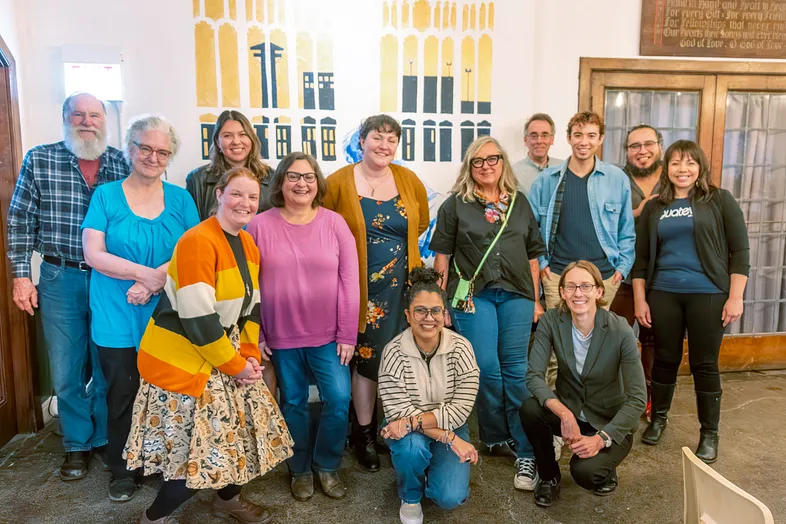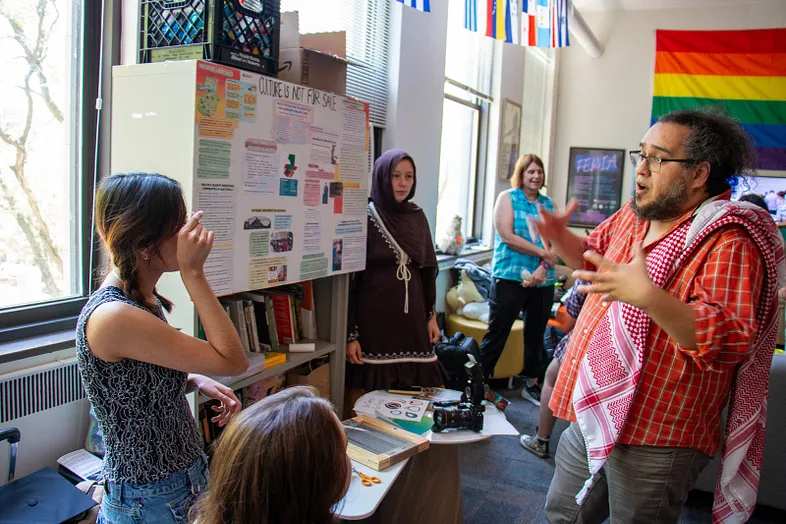

Historical Memory Project: Ni Olvido, Ni Perdón
The Historical Memory Project: Ni Olvido, Ni Perdón was a transformative educational initiative that emerged from a partnership between CRLN and DePaul University’s HumanitiesX fellowship. Launched in the Spring of 2024, the project connected students to critical human rights contexts in Central America, particularly Guatemala, El Salvador, and Honduras. Under the guidance of Professors Dr. Susana Martínez and Dr. Lydia Saravia from DePaul University, along with CRLN’s Co-Director Jhonathan Gómez, the project integrated interdisciplinary study, community engagement, and collaborative art. Students explored historical memory and social justice by researching human rights challenges, particularly issues related to political violence, environmental justice, and Indigenous rights. This collaboration resulted in students producing impactful art and advocacy materials that reflect the region’s struggles for justice, further deepening community awareness of these important issues.
The course was designed as an innovative model, merging academic study with real-world activism. Students participated in archival research using CRLN’s resources and DePaul’s Special Collections, gaining insights into the history of social movements in Central America. They also worked directly with CRLN staff and local activists to research the intersections of climate change, land rights, and transgender issues in Central America. The culmination of the course was an interactive public art exhibit in Chicago, which invited community members to engage with themes of human rights and historical memory through various art forms, such as screen printing and weaving. This event not only educated the public but also provided students with practical skills in using art as a tool for social change and political education.
Faculty contributions were key to the success of the project. Dr. Martínez and Dr. Saravia provided expertise in historical and cultural contexts, helping students analyze migration narratives and the role of rhetoric in social justice movements. Student fellows, including Angelina Álvarez and Safiyah Simkins, played an essential role in organizing the course’s activities and supporting peers in collaborative research. The active involvement of CRLN connected academic exploration to lived experiences, enhancing the course’s real-world relevance. Together, these contributions helped bridge academic learning with community activism, demonstrating the potential of universities to serve as hubs for social transformation and public humanities.
The Ni Olvido, Ni Perdón project is poised for future expansion. Building on the success of the Spring 2024 course, participants plan to extend this model, incorporating student-created materials into public events and communications. Further curricular developments are also underway, with plans for a study-abroad course in Guatemala that will deepen students’ engagement with local human rights movements. The project’s innovative approach to combining art, education, and activism serves as a blueprint for future collaborations, offering a scalable model for institutions seeking to integrate creative expression into social justice education and public advocacy. This ongoing collaboration exemplifies the power of interdisciplinary partnerships in advancing human rights education and fostering global solidarity.
Click here to read about the fellowship here.
Click here to read about the student’s interactive public art exhibit.
